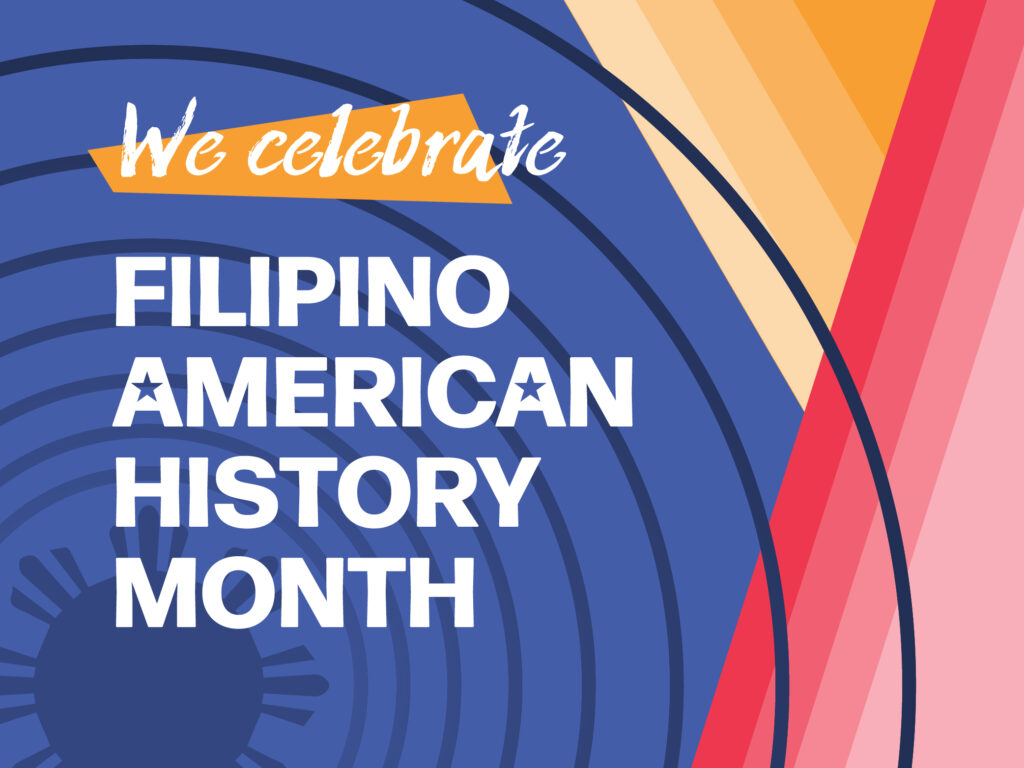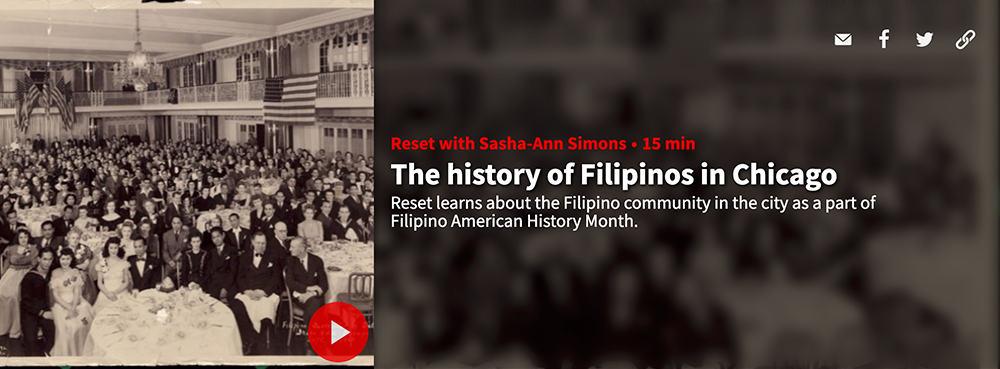We celebrate Filipino American History Month!

It’s important to signify that it’s “history” and not “heritage.”
History signifies action. History indicates that we as Filipinos have contributed to the accomplishments, legacy, and momentum of our people’s existence here in the United States. “FILIPINOS make up 18% of the Asian population in the United States, according to a new report by the Washington-based polling firm Pew Research Center.” (asianjournal.com)
AsianJournal.com continues, “Based on Pew Research’s analysis, there are 4.2 million Filipinos living in the United States as of 2019, making them the third-largest Asian origin group in the country.”
And although Filipinos have been in the United States since 1587 when we landed on what is now Morro Bay, California, Filipino American history is not readily taught in schools.
But I’m heartened to share that is changing. In 2021, Illinois became the first state to pass a law mandating that “Illinois public K-12 schools must include a unit on the history of Asian Americans in Illinois and the Midwest, as well as Asian Americans’ contributions toward advancing civil rights in the U.S.” (cnbc.com)
If you’re anything like me, the idea of learning the entire history of an entire people can seem overwhelming. And don’t worry, no one is asking you to! I simply ask you to acknowledge Filipinos’ existence and contributions in the United States. Although I’m fascinated by the general subject of History now as an adult, History was my least favorite subject in school, to say the least. In fact, I dreaded it. (We’ll leave my ranting about how being force-fed dates by a disinterested and disdainful teacher in Catholic grade school contributed to my initial distaste for History for another time.)
So, for a friendly introduction into Filipino American history, specifically in Chicago, my hometown, I invite you to dip a toe into Filipino American History by listening to the following episodes of the podcast Reset with Sasha-Ann Simons on WBEZ:


If you gave the podcast episodes a listen, comment below, and let me know what you think.
Salamat po (that’s “thank you” in Tagalog, one of the more widely known Filipino languages) for reading!

(“Salamat” is the word that means “thank you,” and “po” is an honorific.)


